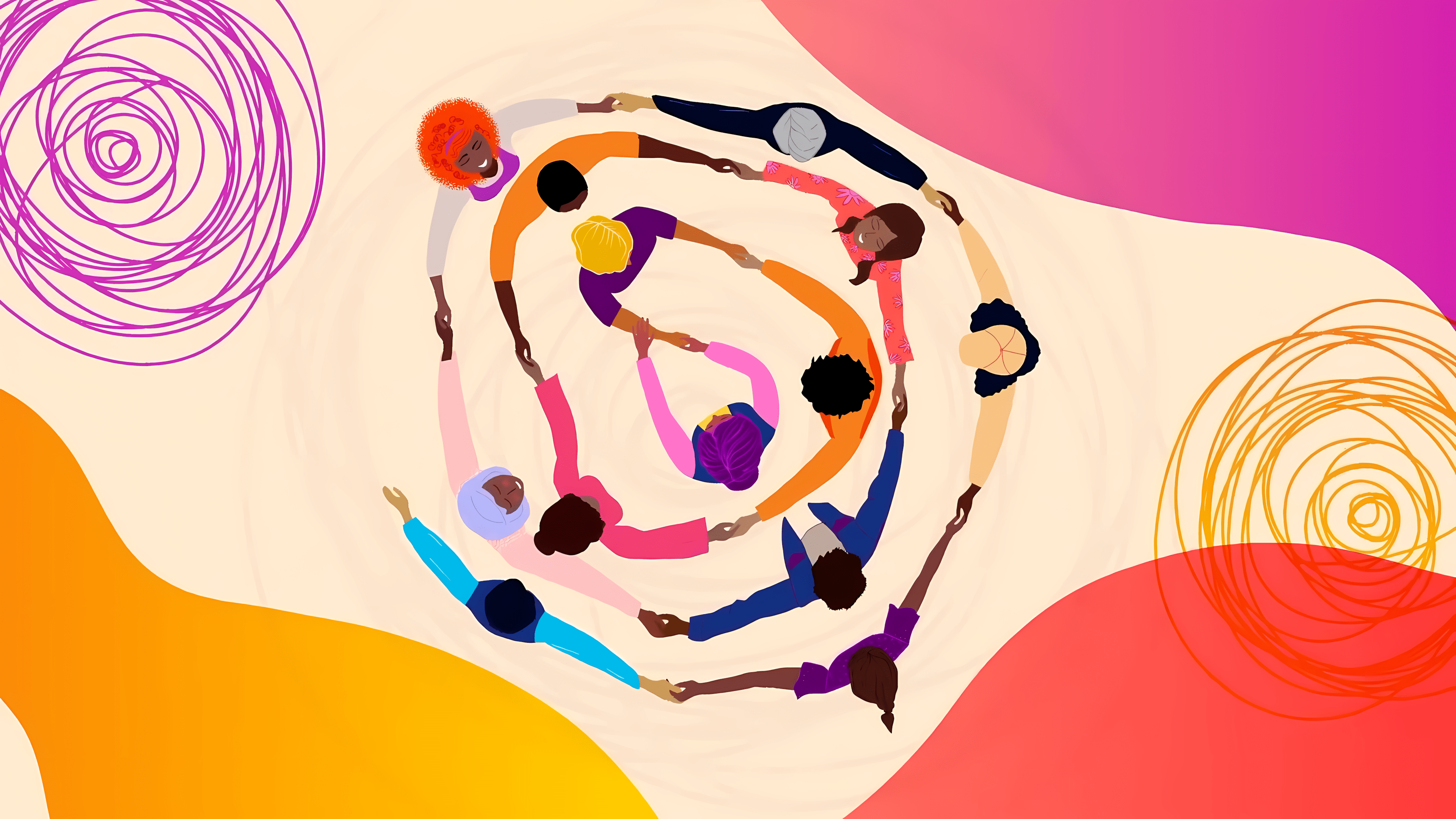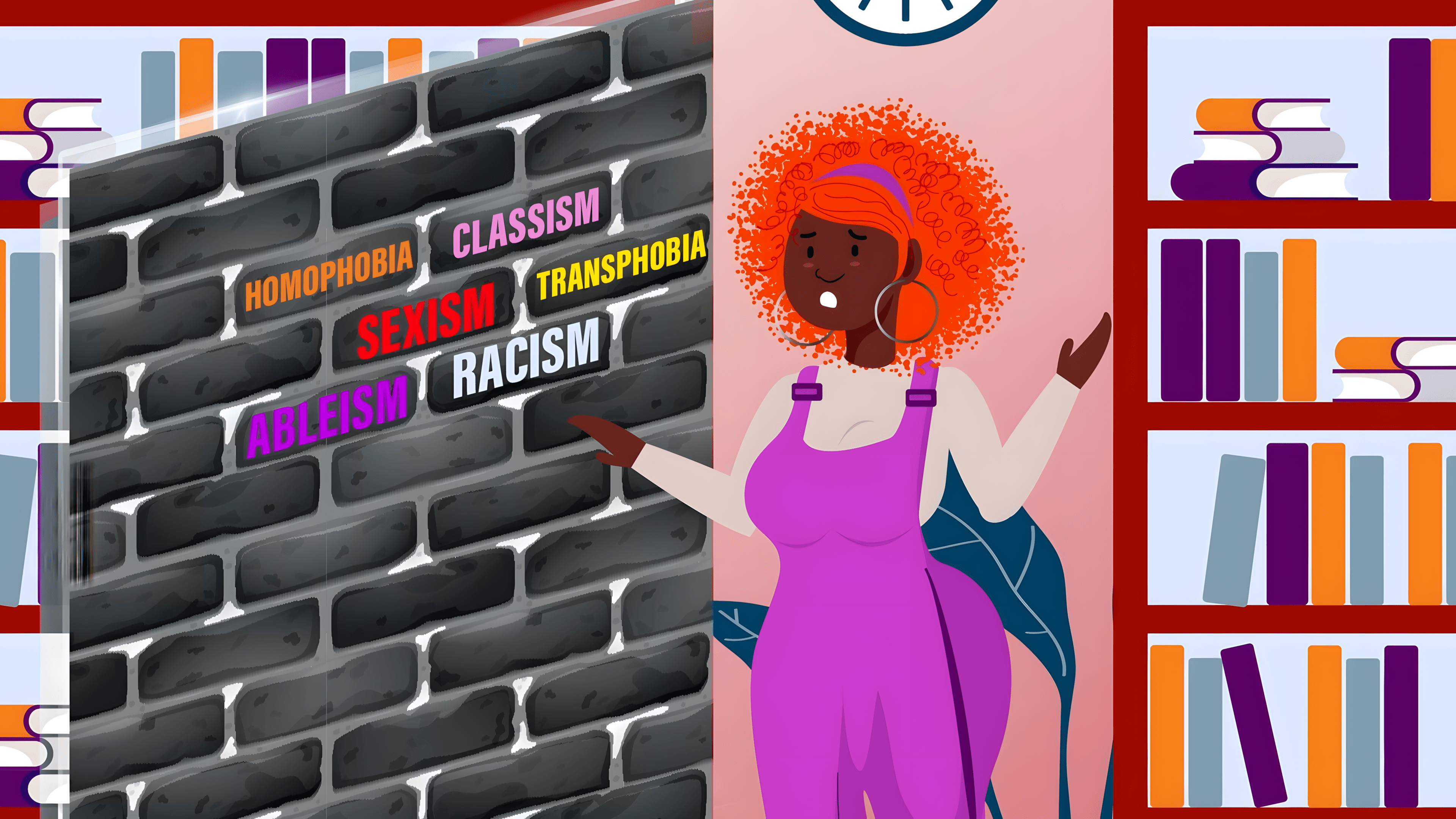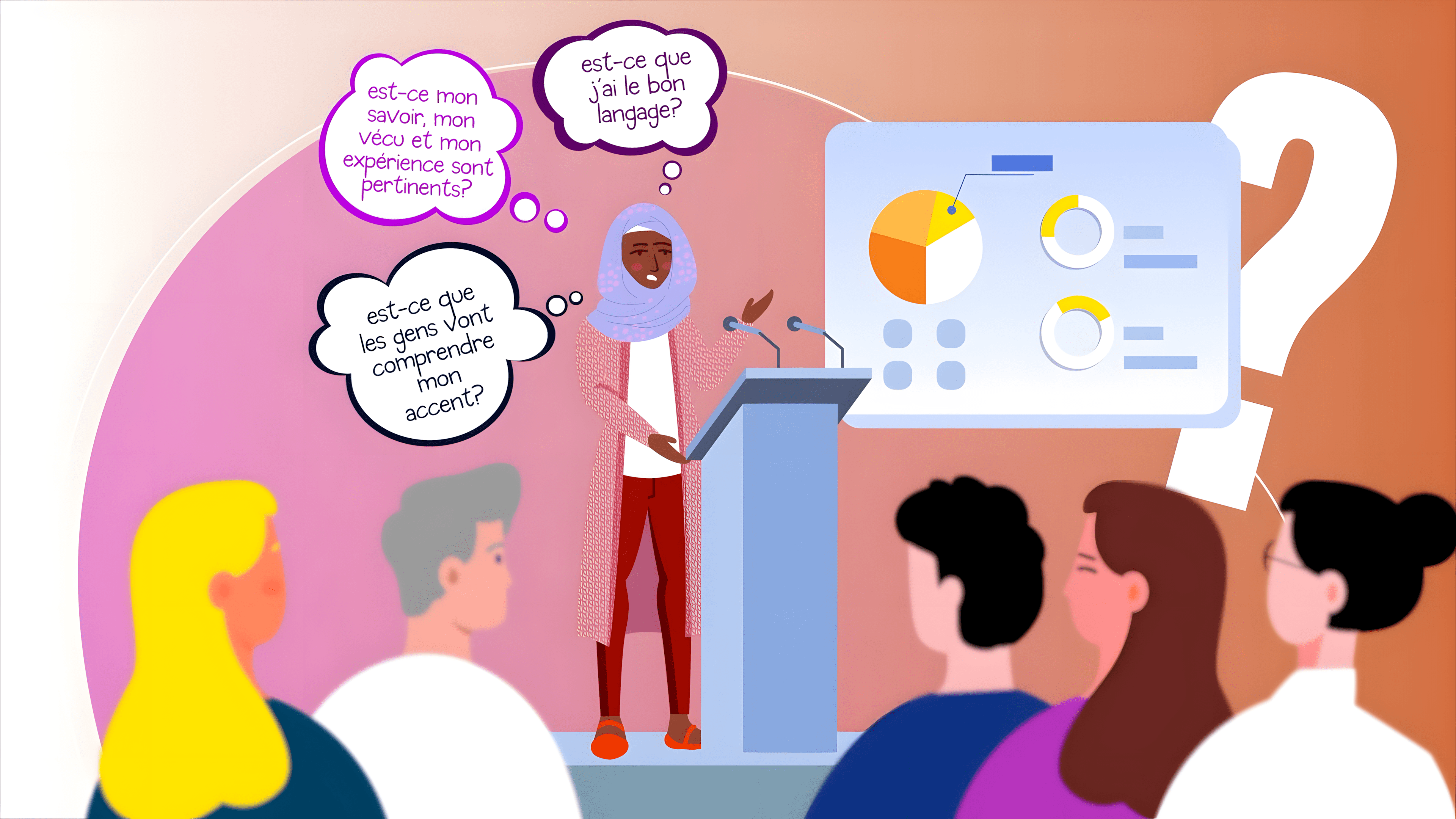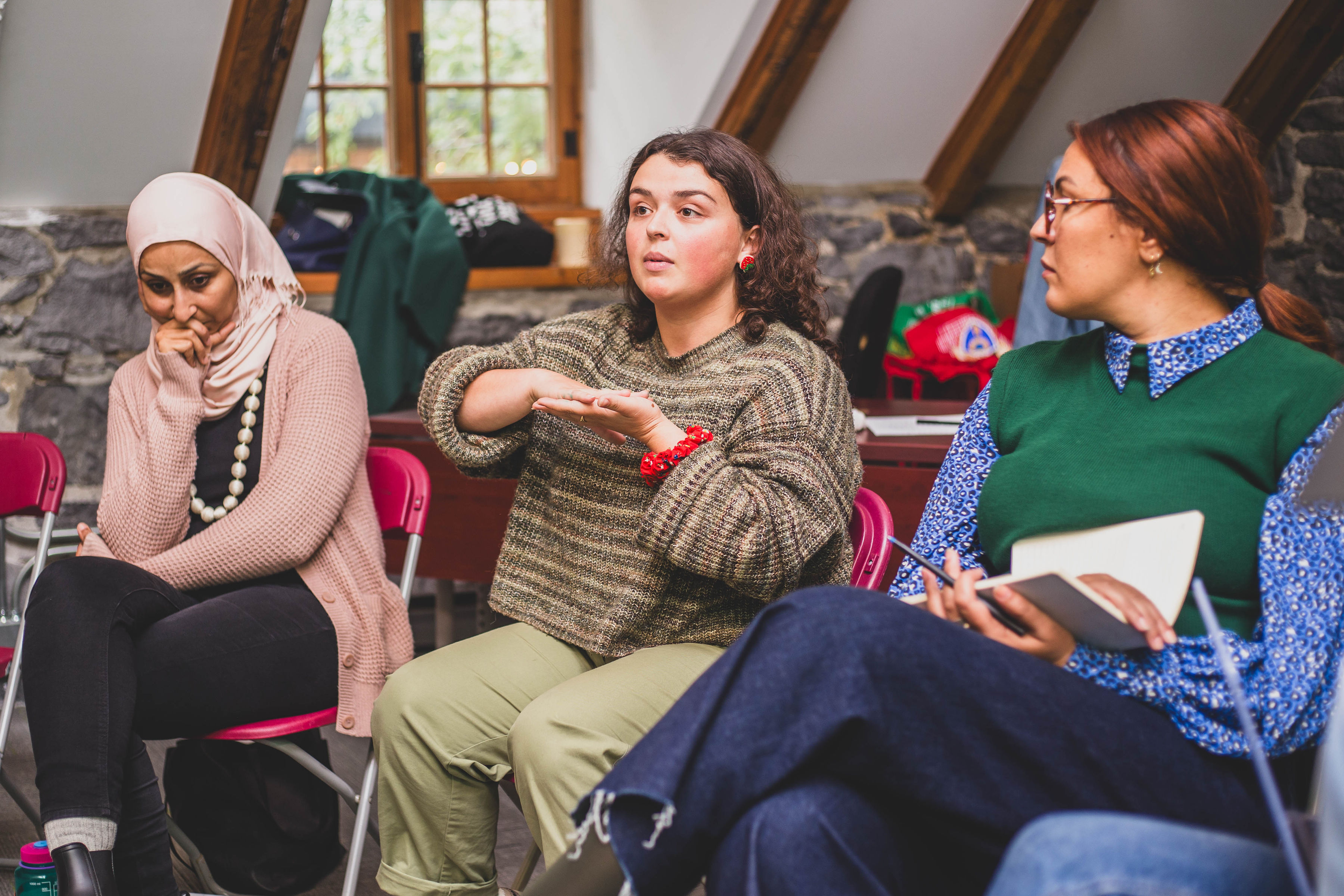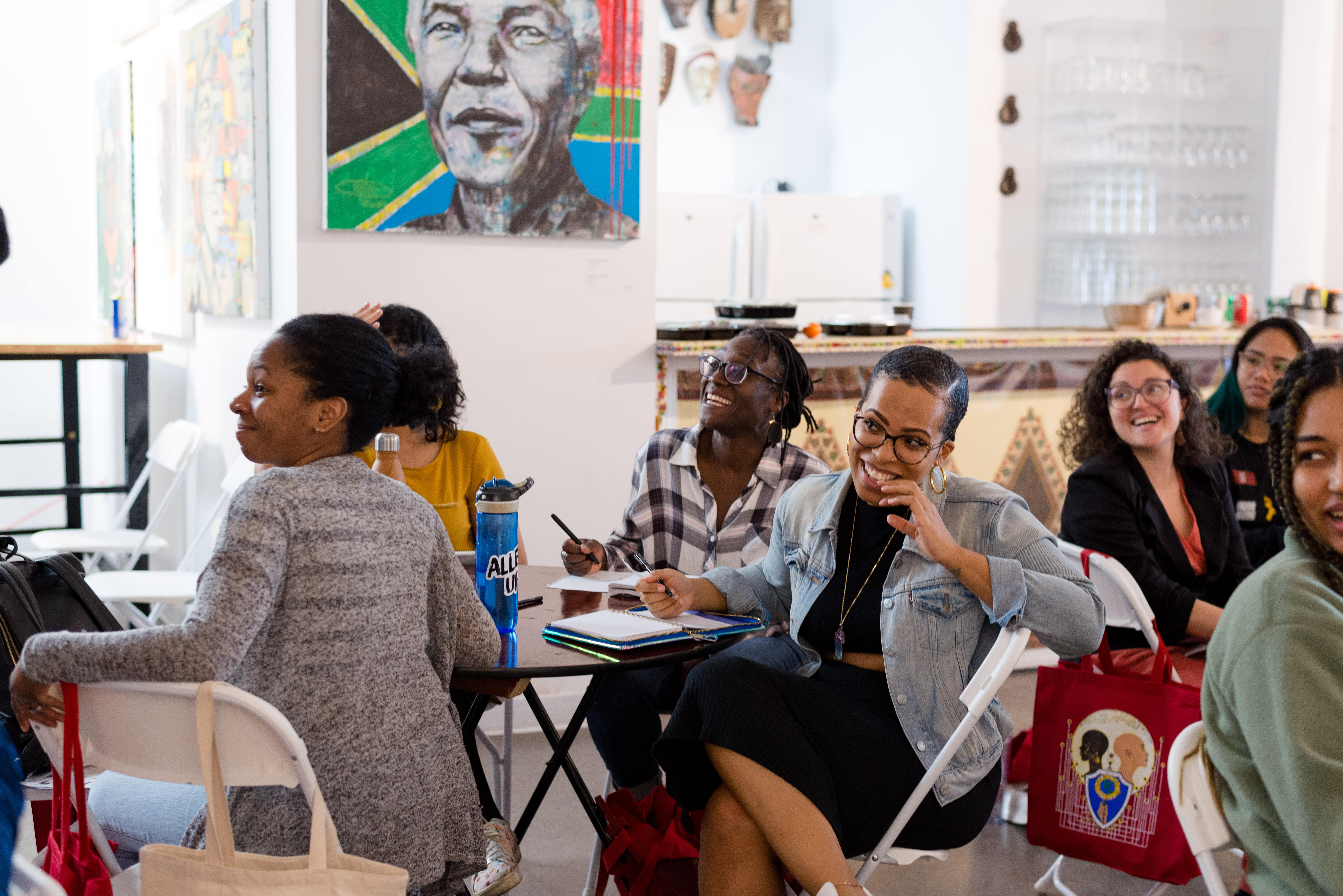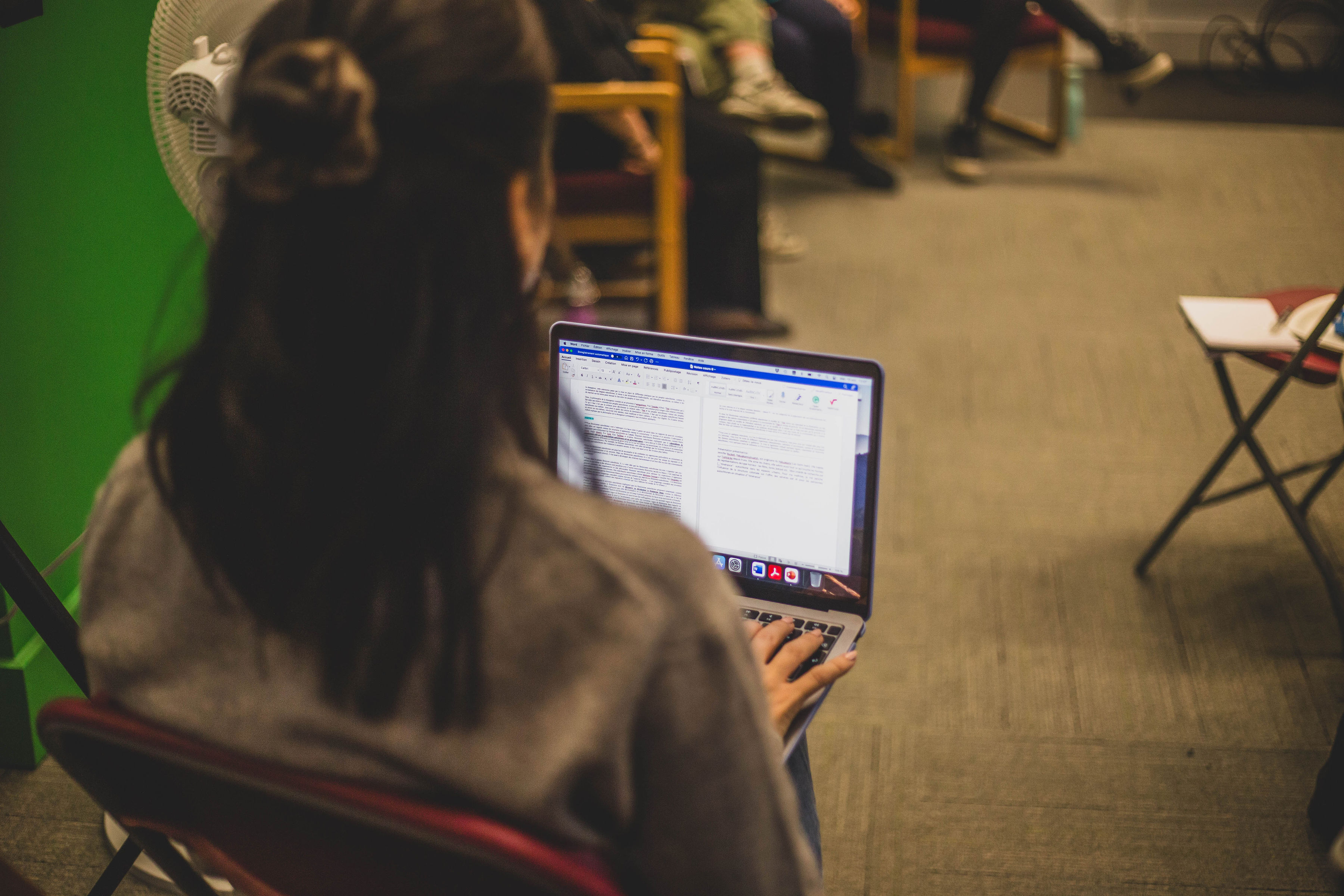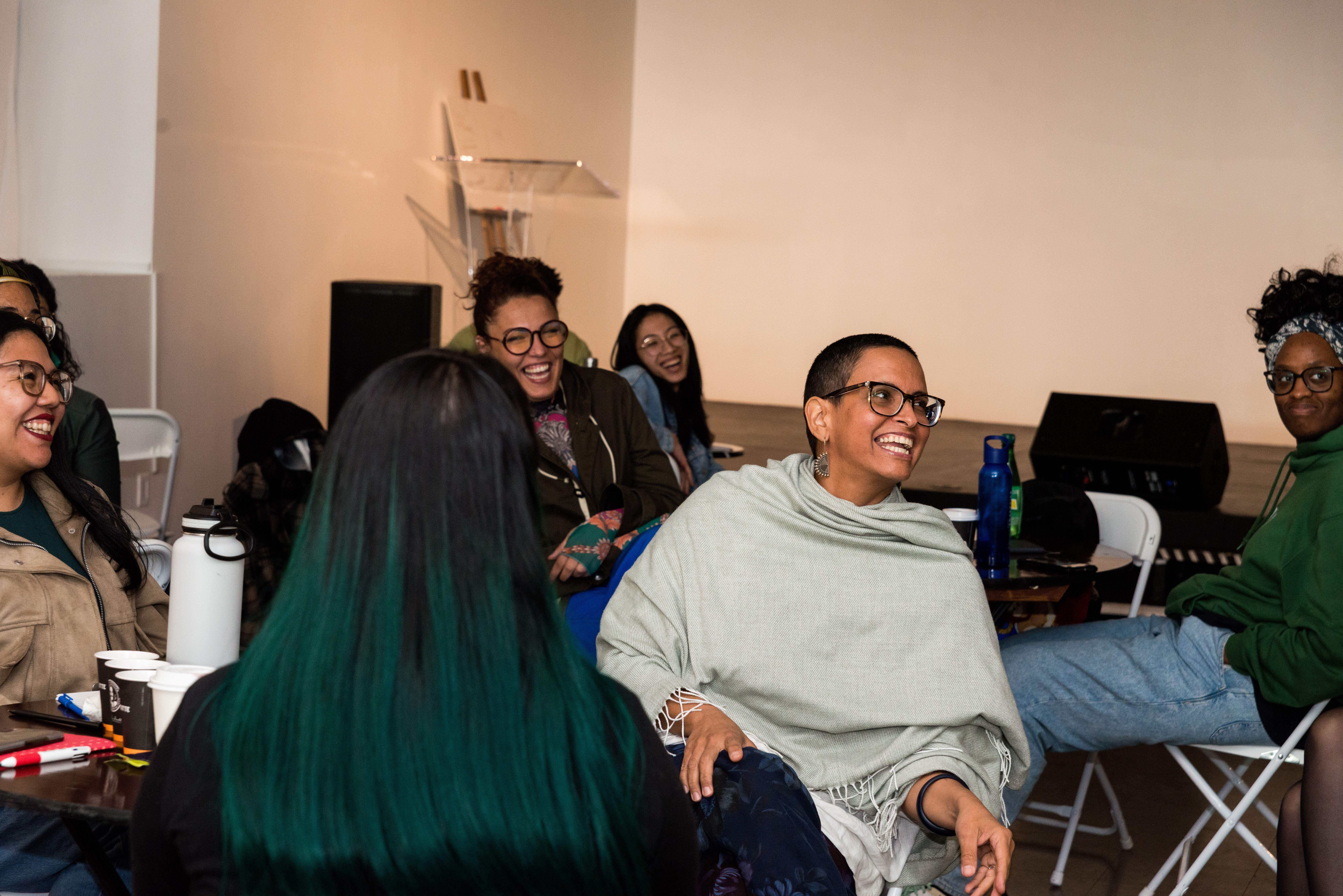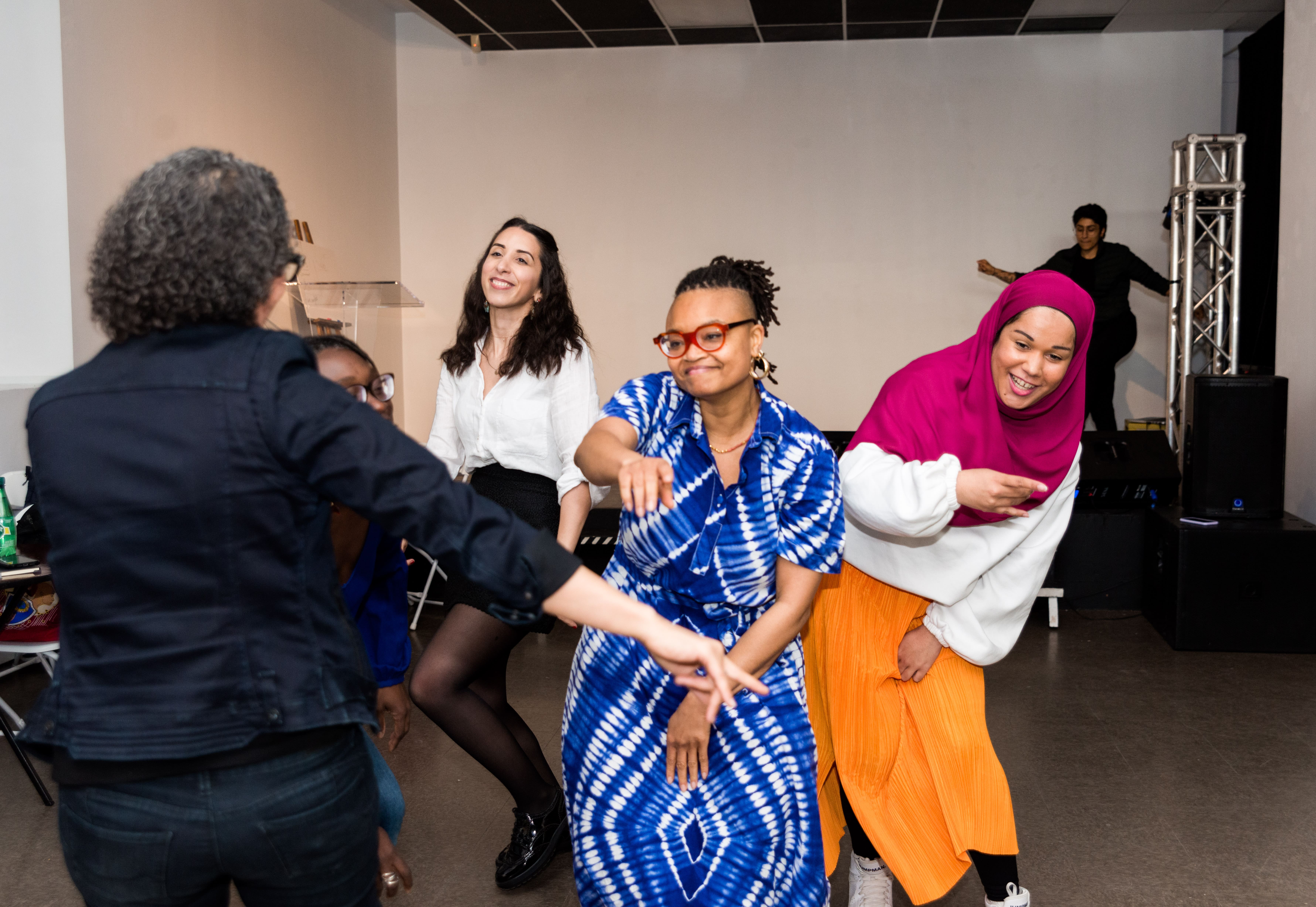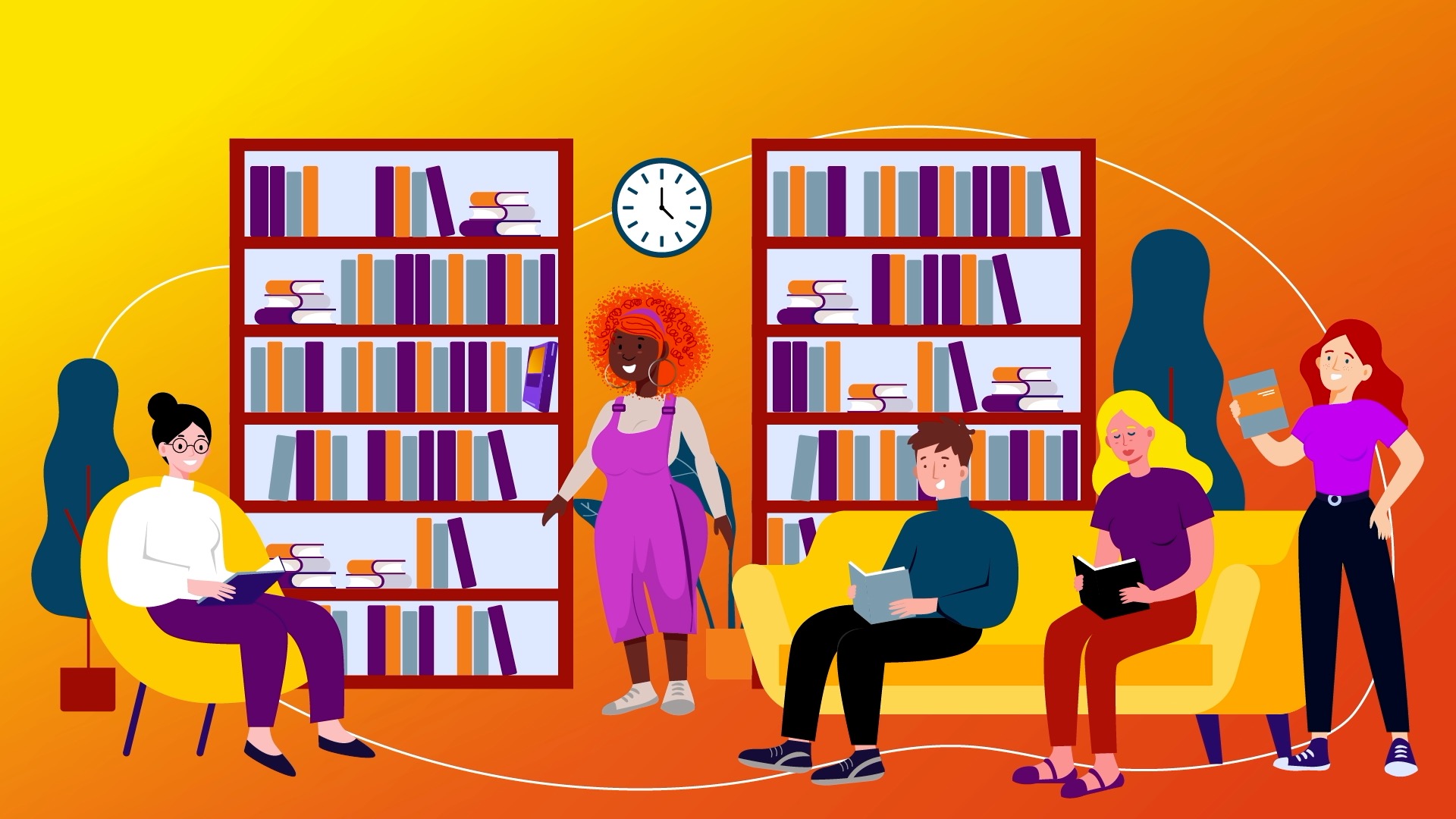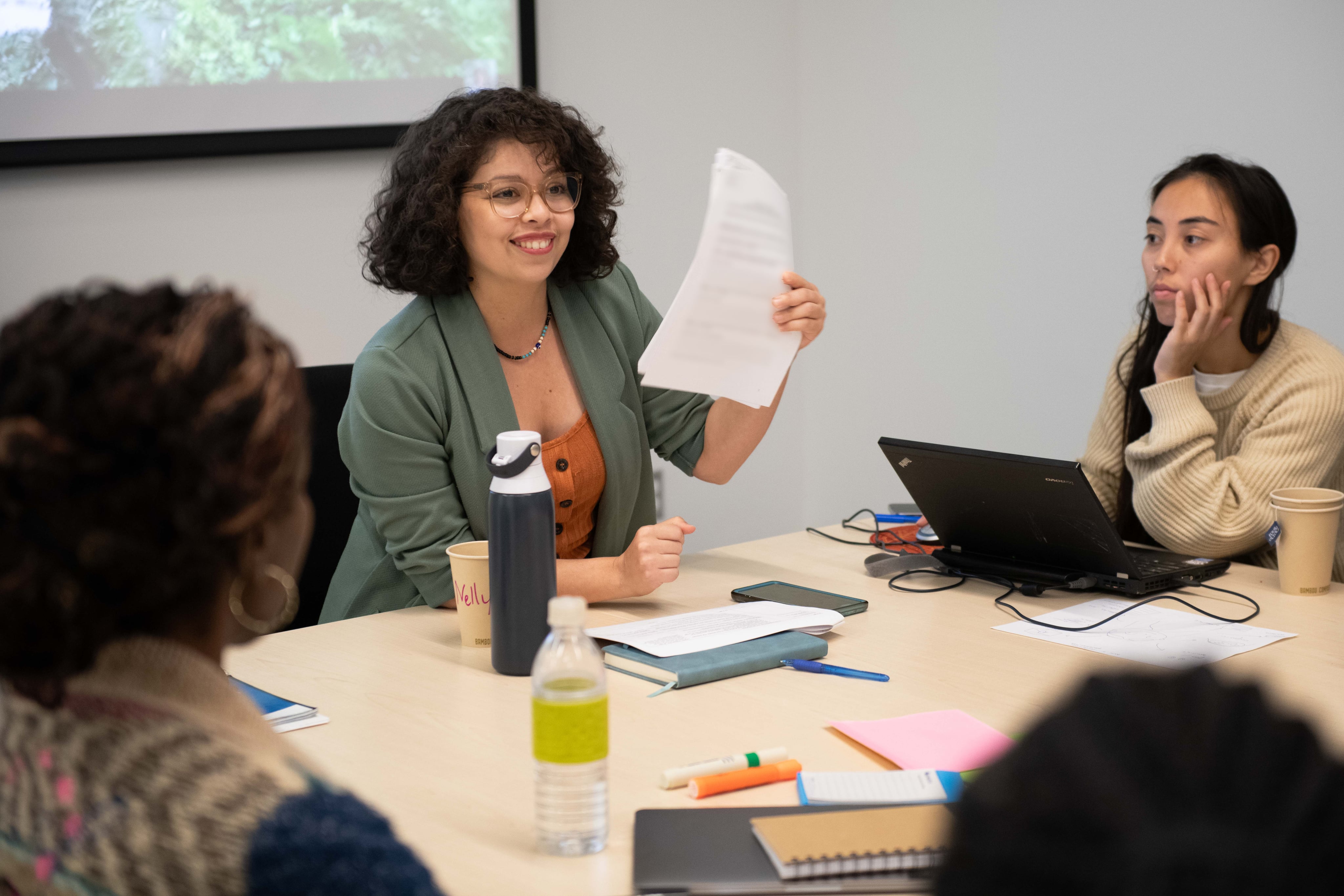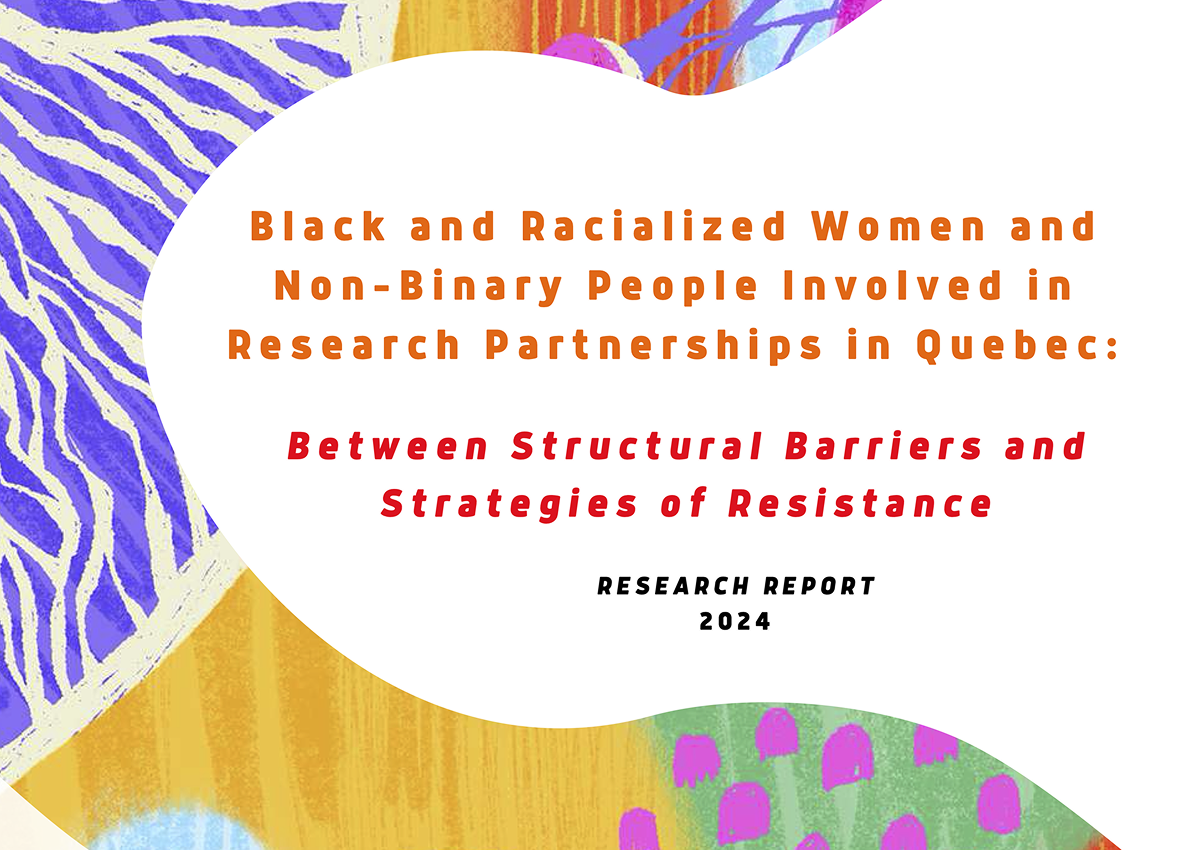Research

The PARR project emerged, in part, from a simple yet ambitious aim: to document the experiences of Black and racialized women and non-binary people in partnership-based research settings across Québec—whether in activist, community, or academic settings.
In 2022, a study was undertaken to identify the systemic barriers these individuals face, as well as the strategies—both individual and collective—they employ to address them.
This qualitative research, carried out with rigour, care, and deep attentiveness by Félicia Cá and Saaz Taher, revealed key findings. Chief among them: the persistence of systemic racism—often minimized—that undermines the legitimacy, professional advancement, and well-being of Black and racialized women and non-binary people in these spaces. The study also revealed deeply flawed structures and discriminatory mechanisms—such as out-of-touch ethics boards, imbalanced partnerships, financial precarity, emotional toll, and extractive research practices—that make participation in research not only challenging, but often harmful and costly for those most directly impacted.
More than simply identifying these issues, the study sought to envision alternative ways of producing and sharing knowledge—rooted in the lived realities of Black and racialized people in the field. It called for the creation of spaces for solidarity, collaboration, and empowerment, designed by and for those who face these exclusions and their countless consequences.
PARR’s initial calendar of activities—then still a project within Relais-femmes—was shaped directly by the needs expressed by study participants. From this emerged a range of initiatives: trainings, workshops, an interactive card deck, and a podcast, all developed to document and share the knowledge, expertise, and lived experiences that had been gathered.
As one participant put it—with sharp clarity and evident disappointment—while reflecting on past experiences:
“You take part in a project, and then you never hear about it again.” — Research participant
With PARR, the opposite happened. In addition to the tangible outcomes mentioned above, events like the forum, BIPOC Days, and Cohort Days were created in response to participant’s desire for connection. These gatherings provided an opportunity for those involved in interviews, focus groups, and the advisory committee to reconnect and foster meaningful solidarity throughout the process. This is what a concrete, ongoing, and sustained commitment looks like.
This work laid the foundation for PSRR to become a formal organization in 2024.
Some excerpts are drawn from testimonies in the PSRR report or from the reflective card game. These have been adapted and anonymized for outreach purposes.
Promotion des actrices racisées en recherche (PARR). (2024). Strategies in bloom: Cultivate your well-being in collaborative research (Reflective card deck - English version). A tool for raising awareness and self-reflection, based on the testimonials and transformation ideas shared as part of the PARR project.
The definition of epistemic injustice is taken from the PARR report, which quotes Godrie, B., Desrosières, E., & al. (2020). Les injustices épistémiques : vers une reconnaissance des savoirs marginalisés.






